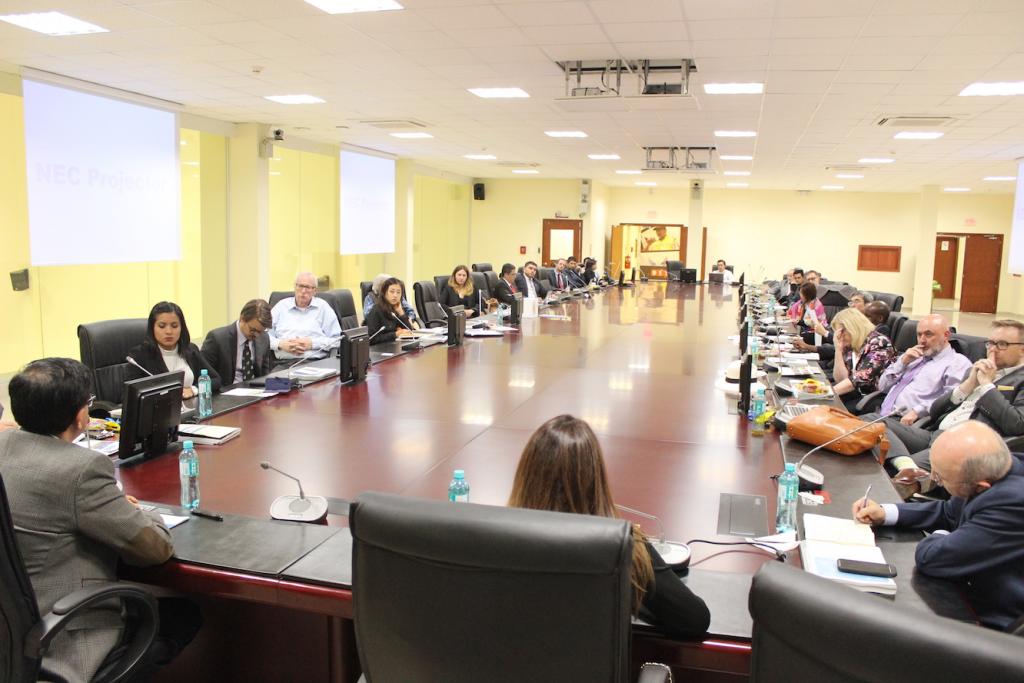UNITAR hosts the XIII Annual Meeting of its CIFAL Global Network
 21 October 2016. Quito, Ecuador - The CIFAL Global Network serves government authorities and key actors mainly from local and sub-national levels by providing training on how to tackle issues ranging from road safety to migration and development, leadership and the 2030 Agenda for Sustainable Development, to name a few.
21 October 2016. Quito, Ecuador - The CIFAL Global Network serves government authorities and key actors mainly from local and sub-national levels by providing training on how to tackle issues ranging from road safety to migration and development, leadership and the 2030 Agenda for Sustainable Development, to name a few.
UNITAR’s global network of affiliated training centres is comprised of 16 “International Training Centres for Authorities and Leaders (CIFAL)” Centres located across Africa, Asia-Pacific, Australia, Europe, North, Central and South America reaching out to some 10,000 beneficiaries annually through more than 100 capacity building activities.
The thirteenth annual Steering Committee Meeting of the CIFAL Global Network took place in Quito in the framework of the United Nations Conference on Housing and Sustainable Urban Development (Habitat III). CIFAL Centres Directors participated in the events of Habitat III and engaged in the global discussions on urban development.
During this year’s meeting, four new CIFAL Centres were welcomed: CIFAL Argentina, CIFAL Philippines, CIFAL Zurich and CIFAL Bangalore. Each CIFAL will serve as a hub for training in areas related to road safety, migration and development, leadership, technology and smart cities, youth engagement, and environmental sustainability.
UN Assistant Secretary-General and Executive Director of UNITAR Mr. Nikhil Seth addressed the CIFAL Centres Directors, shared his vision for UNITAR and outlined the key transformations the Institute will experience in the upcoming years. Mr. Seth stressed the importance of the CIFAL Global Network in advancing UNITAR’s training agenda.
The Directors of the CIFAL Centres presented its annual report of activities. Overall, the CIFAL Global Network will deliver more than 150 events by the end of 2016 and will reach some 15,000 beneficiaries from local, subnational and national governments, the private sector, and civil society.
Related link
Learn more about the CIFAL Global Network.

